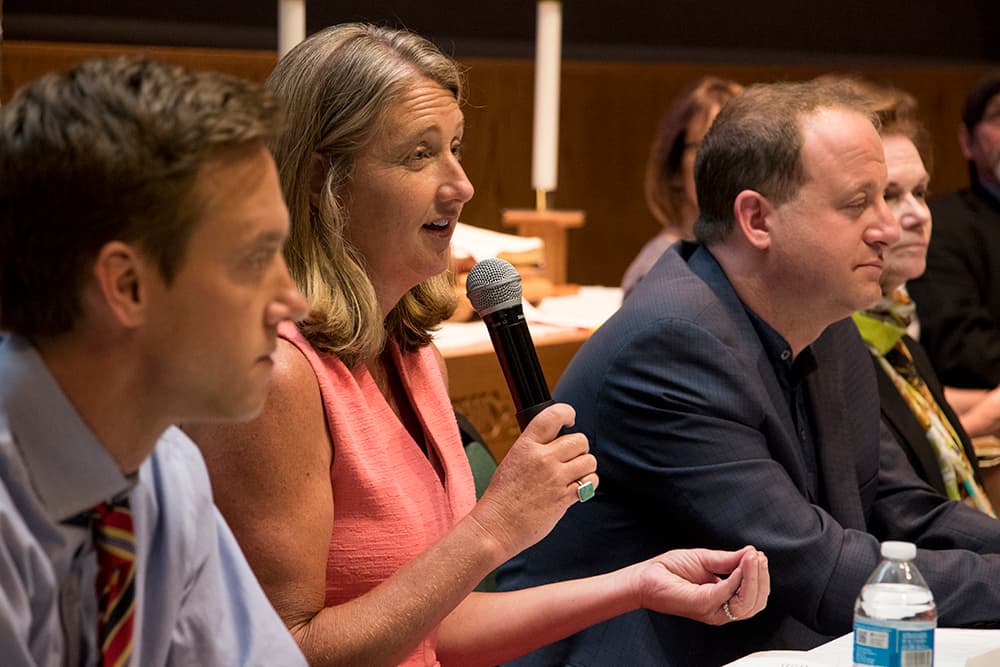
Gubernatorial candidates got a chance to talk about how they would address the state’s affordable housing crisis, homelessness and education during a Thursday night forum at Shorter Community AME Church.
Four candidates participated in the gubernatorial forum, called "Keeping Colorado Affordable" and organized by the Colorado Coalition for the Homeless. Democrats Mike Johnston, Cary Kennedy, Lt. Gov. Donna Lynne and U.S Rep. Jared Polis were all in attendance. All four current Republican candidates were also invited, but none attended.
The tension brought about by a pro-Kennedy ad released earlier this week was nowhere to be found Thursday. Each candidate got about 2 minutes to answer questions, so there wasn’t much room to butt heads.
The candidates were quizzed by organizers on how they would use the state’s resources to end homelessness in Colorado, a question that led most candidates to pivot to how they would provide more affordable housing and deal with concerns about education.
Lynne said she would establish a state department focusing solely on housing to collaborate with communities and business. She said she would also expand affordable housing income credits, but that this all will require a collaboration between city, county and private agencies.
Polis said a lack of affordability is driving families out of the state. In addition to creating a funding stream for housing, he said, there needs to be some rent and eviction reform in the state and an effort to ensure that homelessness isn’t criminalized.
“We need a permanent affordable housing fund with a dedicated funding stream,” Polis said. “It really needs a dedicated funding stream.”
A similar proposal was suggested by Kennedy, who also said there need to be stronger protections for renters. She said $200 is the average amount over which families in Colorado are being evicted.
“We can do so much better than that, providing short-term assistance and strengthening rental protection funds,” Kennedy said.
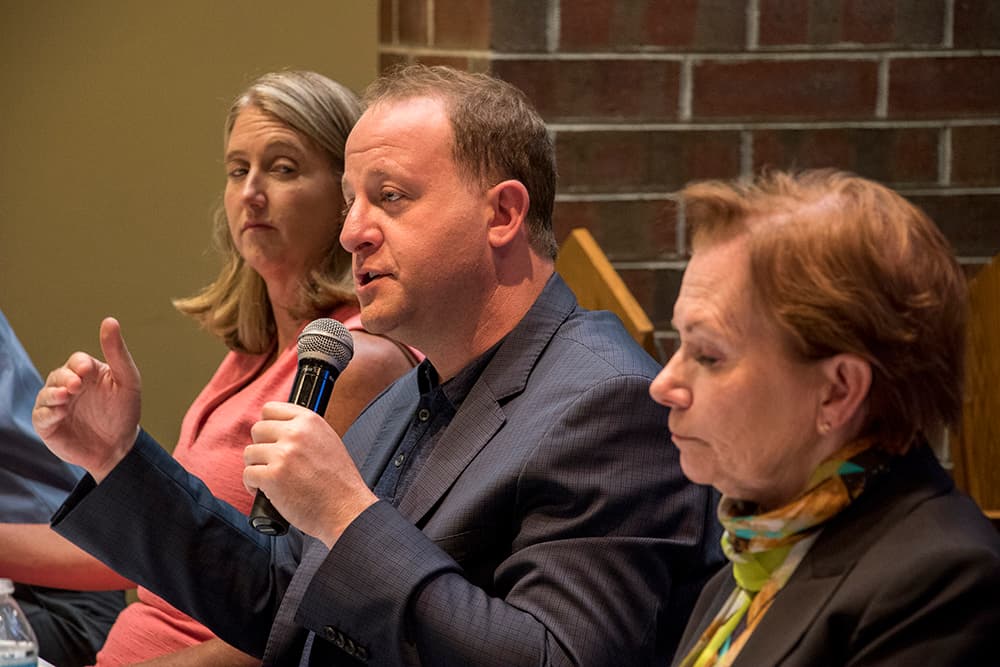
To make his point, Johnston took the anecdote route, recounting a story about his mother-in-law moving to Colorado from Memphis after retiring. She budgeted and saved, but after 12 months of living here, the building she was living in was sold, resulting in a 30 percent rent hike.
Solving issues like this would entail creating a public-private partnership to use what he said are “under-utilized lands” that could support housing units that would be rent controlled for 30 or more years. (Denver does not have rent control and likely never will.) He believes this is a better option than a housing fund or tax revenue.
“Those are the kinds of partnerships that will be big enough to actually solve the problem,” Johnston said.
Democratic candidates all want to more or less get rid of TABOR to help achieve some of their proposed housing solutions.
The candidates all want some kind of reform of the Colorado’s Taxpayer Bill of Rights, which they believe is limiting the amount of money that’s made available for affordable housing and education.
Despite boasting an economy among the nation’s strongest, not all Coloradans have benefited from growth in the state’s economy, Kennedy said. She said that as governor, she would lead a bipartisan group to pass permanent TABOR reform. Doing this would help keep more tax revenue available for infrastructure projects, like refurbishing schools or improving roads.
Kennedy said that the state needs to make education its top priority, since it’s currently “inequitable and underfunded.” One way to do this, she said, is to ensure pay raises for teachers, but also by “giving teachers support and resources they need.”
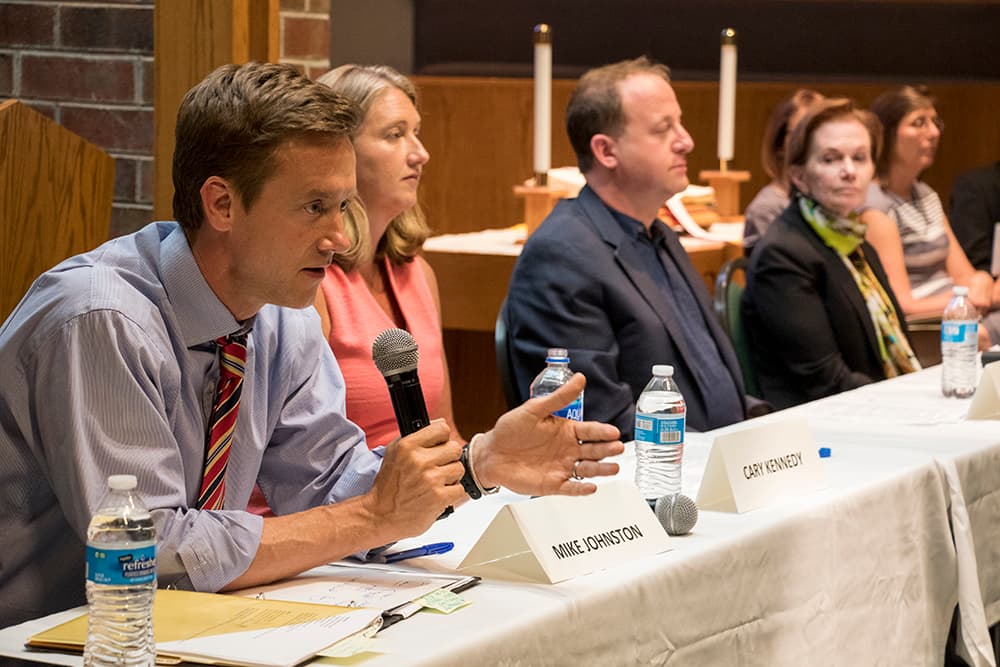
Johnston said he would push for a 2020 TABOR repeal. There are issues that arise when the state doesn’t invest more money in education, he said, including making it harder to educate a local workforce because funding for higher education is being cut and issues with the physical infrastructure to move goods. Johnston said the money the state would gain could make full-day kindergarten available for everyone.
Lynne took the opportunity to call out State Treasurer Walker Stapleton for not knowing enough about the state’s budget process. She said she would work collectively with the state legislature to get rid of TABOR. She also said she would work with special interests groups so they know how they could benefit from its repeal.
By Polis’ count, a lack of transportation infrastructure is costing the state billions. He said there’s about $7 billion worth of lost productivity because of inadequate infrastructure. He also believes that every child should have access to full-day kindergarten, no matter what the child’s race or economic standing.
“I want to make sure that every child has access to preschool,” Polis said.
Prompted by a question, he said it’s important to acknowledge that children in communities of color are disproportionally affected by poverty. He wants to make sure all schoolchildren have a breakfast and lunch, which he said could be the only meals of the day for some children living in poverty.
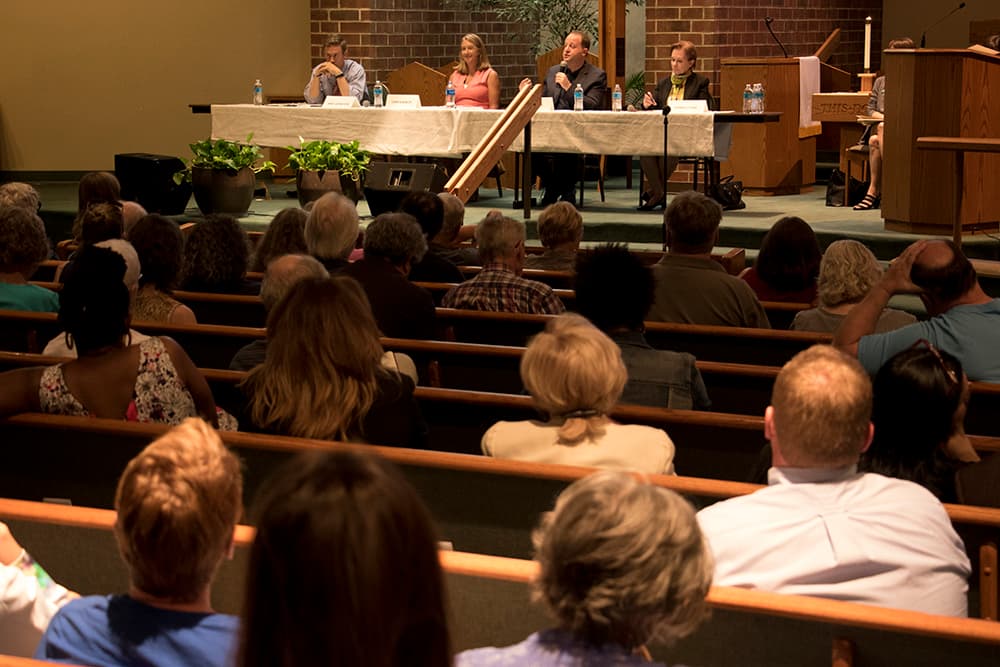
Republican candidates were invited, but didn't make it.
Only Greg Lopez sent a surrogate, but that person didn’t make it; instead, Republican 1st Congressional District candidate Casper Stockham filled in. Victor Mitchell was scheduled to attend but canceled about a week before the event. Stapleton and Doug Robinson both declined to participate or send a surrogate, organizers said.
Speaking on Lopez’s behalf, Stockham said that Lopez would build initiatives that would create more accountability for money being allocated for homelessness. Stockham said that too often money that’s made available to homeless people doesn’t get to them.
“We need a reboot,” Stockham said. “We need a community reboot. We need to change the entire system. The way it’s set up, it’s not set up to lift people out of poverty.”
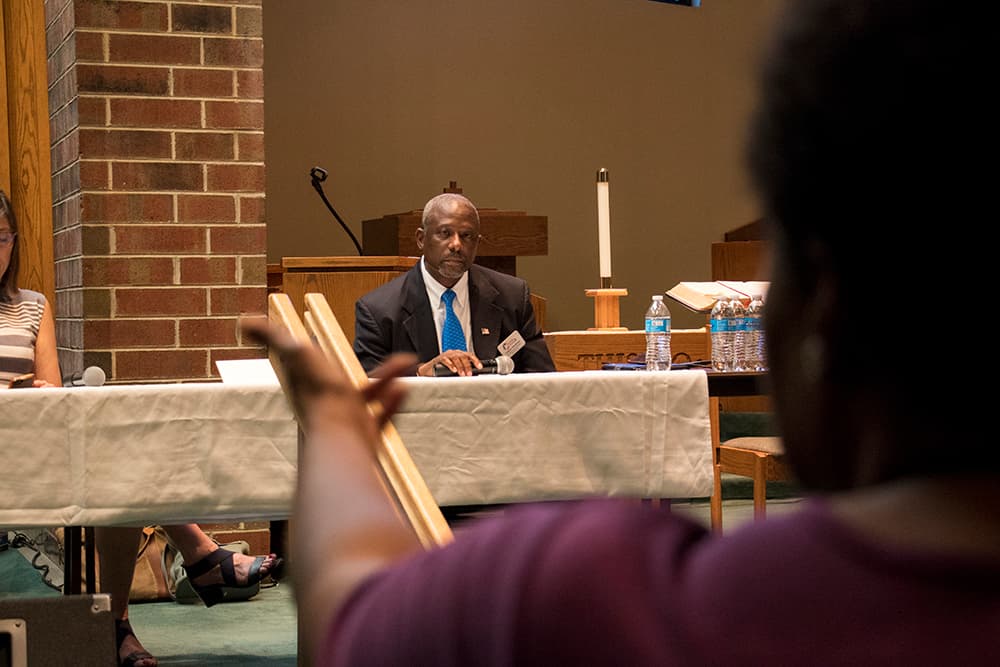
Some of his responses prompted some groans from the audience. One audience member asked him to move beyond the recommendation that people should “pull themselves from the boot straps,” which Stockham denied ever suggesting.
“The issue is not that things are standing in our way, the issue is we are standing in our own way,” Stockham said.
Stockham said the government has a larger systemic problem that maintains the status quo rather than helping people thrive. He gave an example from his own life, saying his rent is being raised by $300 a month. More broadly, he said people need to think outside the box when it comes to affordable housing. He said he’s part of a program that’s providing business opportunities for residents.
“The current government that you have right now has put you into this situation,” Stockham said, after being asked about how people can address rising rents.
Next week will give you another chance to listen to all eight candidates.
Democrats and Republicans are scheduled to appear in debates hosted by 9News and broadcast on Channel 20 KTVD. Democrats will debate on Monday, June 4, while Republicans will debate on Thursday, June 7.
And if you still want some more info about who's running, go ahead and read our primer for the primary election.












